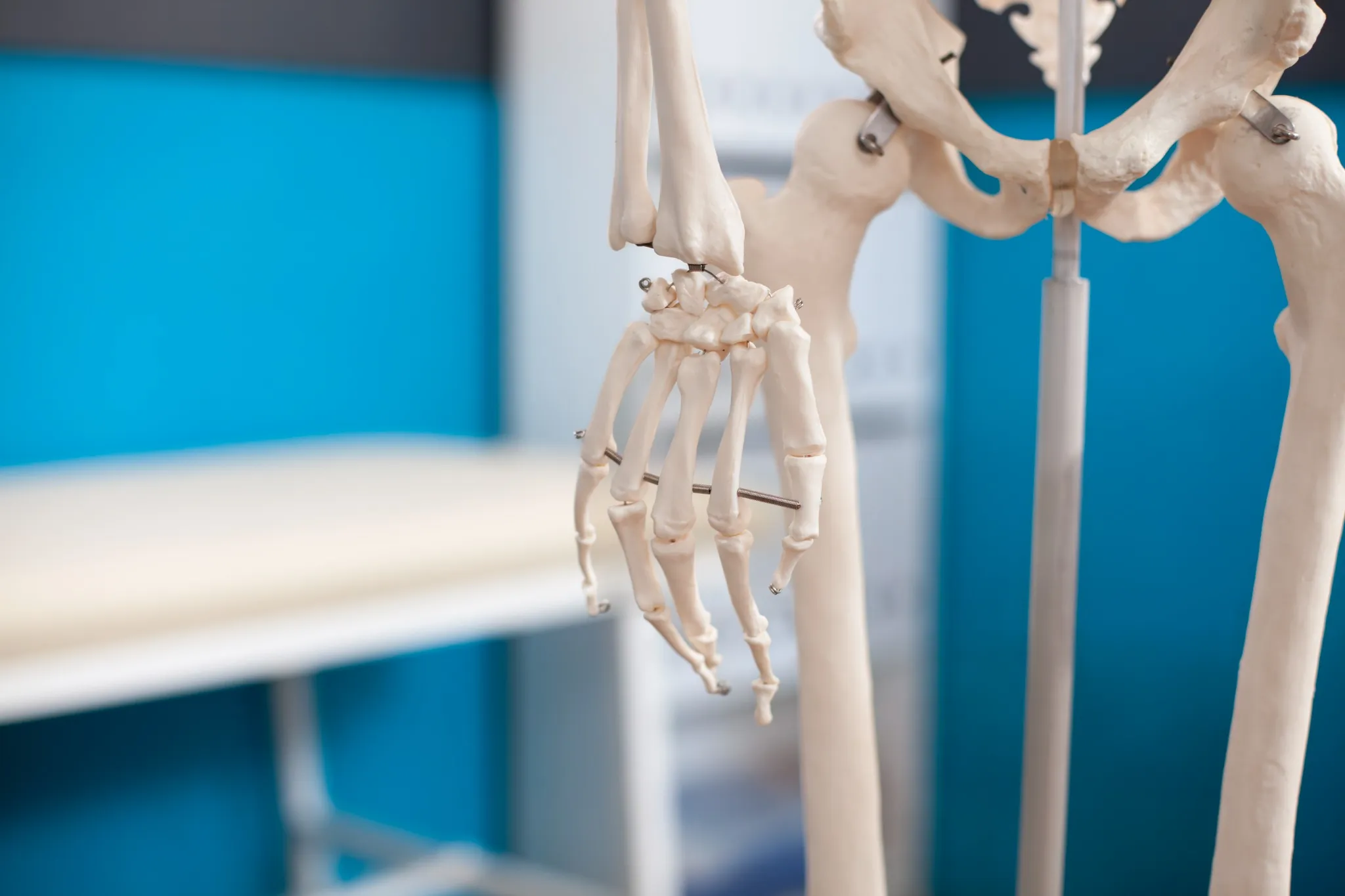Dehydroepiandrostenedione Sulphate (DHEAS) Test - Serum
DHEAS Test Overview
DHEAS test measures the levels of DHEA sulfate in your blood. DHEAS is the abbreviated term for dehydroepiandrosterone sulfate. It is the male sex hormone present in both males and females. This hormone plays an important role in the production of the sex hormone testosterone in males and estrogen in females. Also, it is involved in the development of sexual characteristics in males at the onset of puberty.
In a healthy adult, DHEAS is produced by the adrenal glands which are present above the kidneys. Other than acting as a sex hormone, DHEAS controls blood pressure heart rate, and other body functions. Small quantities of DHEAS are also produced by male testicles and female ovaries. If the levels of DHEAS are not normal in the body then maybe adrenal glands or sex organs are responsible for this.
Therefore, DHEAS test is run to evaluate the levels of dehydroepiandrosterone sulfate in blood.
What is it Used for?
A DHEA sulfate (DHEAS) test is most often used to:
- To diagnose the malfunctioning of adrenal glands
- To detect the presence of tumors in adrenal glands
- To identify the disorders of testicles and ovaries.
- To rule out the cause of early puberty in boys.
- To diagnose the reason for hypertrichosis (excess hair growth on the body) and virilization in females (development of male physical characteristics).
A DHEAS test is generally accompanied by other sex hormone tests such as testosterone tests for men and estrogen tests for women.
Dehydroepiandrosterone (DHEA) is a steroid precursor produced in the adrenal glands. It is converted into sex hormones (estrogens and androgens). DHEA’s effects on the body are similar to those of testosterone. The DHEAS test is useful to know the status of sex hormones in the body.
Total tests included : 1
The DHEAS test is a blood test that measures levels of dehydroepiandrosterone sulphate (DHEA-S), a hormone produced by the adrenal glands. It provides insights into adrenal function and hormonal balance, aiding in the diagnosis of various endocrine disorders.
Written by : Dr.Shibani R Medical Writer Medical Affairs
Reasons for Undergoing the DHEAS Test
The DHEAS blood test is performed to diagnose and differentiate hyperandrogenism, evaluate adrenal gland function, investigate precocious puberty, assess hormonal imbalances in women experiencing symptoms like excess hair growth or irregular periods, and support other hormone tests for a comprehensive evaluation.
List of Parameters Considered During the DHEAS Test
The key parameter measured in the DHEA blood test is the level of DHEA-S in the blood. This value reflects adrenal gland functioning and can indicate conditions such as polycystic ovary syndrome (PCOS), ovarian cancer, adrenal tumours, or adrenal insufficiencies.
DHEAS Test Preparation
Preparing for the DHEAS test is straightforward. No fasting is required unless specified by your healthcare provider. Inform your doctor about any medications or supplements you are taking, as some may affect DHEAS levels. It is also advisable to avoid smoking before the test.
DHEAS Test Results and Interpretation
DHEAS test results are interpreted based on the normal range, which varies by laboratory and age. High levels may indicate PCOS, ovarian cancer, adrenal tumours, or congenital adrenal hyperplasia, while low levels may suggest Addison's disease or pituitary adenomas. Additional testing may be necessary for a definitive diagnosis.
Home Collection for Dehydroepiandrostenedione Sulphate (DHEAS) Test - Serum
Home collection for the DHEAS test offers a convenient solution for individuals to get tested without visiting a clinic. With Metropolis Healthcare's lab services, a trained phlebotomist comes to your doorstep to collect blood samples. This service ensures comfort and safety while maintaining high standards of sample handling and testing accuracy. Patients can expect a seamless experience with timely and reliable results, empowering them to take proactive steps in managing their health. Metropolis Healthcare's commitment to accessible healthcare underscores its dedication to providing quality diagnostic solutions conveniently at home.
Dehydroepiandrostenedione Sulphate (DHEAS) Test - Serum Price
Metropolis Healthcare is a leading diagnostics centre and pathology lab in India equipped with the latest state-of-the-art technologies that provides the Dehydroepiandrostenedione Sulphate (DHEAS) Test - Serum with a clear pricing structure.
The Dehydroepiandrostenedione Sulphate (DHEAS) Test - Serum Price in Varanasi is ₹ 1,100 .
We are committed to deliver accurate and quality results from the best labs in India with complete transparency regarding test cost and turnaround time. No matter where you are, we strive to offer patients high-quality service that is affordable and accessible.
Frequently Asked Questions
Your doctor prescribes this test if symptoms of high or low blood levels of DHEAS appear in your body. Although the symptoms of high DHEAS may not develop in males, however, in females symptoms of high DHEAS may include-
- Excess growth of hairs on the face and body
- Deepening of voice
- Irregular menstrual cycle
- Excess pimples and acne.
- Increased muscularity
- Loss of hair at the top of the head
The test is also done in babies if there are ambiguous genitals (genitals that are not visible as male or female).
Also, in the case of early puberty in males, the DHEAS test is prescribed.
Moreover, you need this test if you have symptoms of low DHEAS levels and this include-
- Unidentified weight loss
- Dizziness
- Nausea and vomiting
- Dehydration
- Craving for salt consumption
- Decreased sex drive
- Erectile dysfunction in men
- Thinning of vaginal tissues in women
However, the last three above mention symptoms can be due to aging as well.
This test is done in suspected cases of hormonal abnormalities. DHEA abnormality may result in acne, headache, mood changes, breast enlargement in men, and hairiness in women. It may decrease HDL cholesterol (the good cholesterol), and worsen polycystic ovarian syndrome (PCOS). Symptoms of high levels of DHEAS in women and girls may include: Excess body and facial hair growth. Deepening of voice. Menstrual irregularities and PCOS. In males it may lead to early puberty and sexual abnormalities. Symptoms of low DHEAS levels are unexplained weight loss, nausea and vomiting, dizziness, dehydration and craving for salt.
The DHEAS test determines or evaluates the level of DHEA sulfate hormone in the blood. The measured levels indicate the alternation in the functioning of the adrenal gland.
During the Test
After booking the test, a healthcare professional will collect a blood sample from your arm using a small sterilized and non-reusable needle. However, upon needle insertion, you might feel a little sting for a while. After the insertion of the needle, a small quantity of blood will be collected in a vial. This will take no more than five minutes. After this test on the taken sample will be performed cautiously.
Precautions to be Taken
No specific precaution such as fasting or water consumption needs to take before the DHEA sulfate test.
After the Test
Although the DHEA sulfate test is safe and no risk is involved. You may feel slight pain or bruise at the blood collection site of your arm. However, this may also go away very quickly.
After running the test, if the report shows high blood levels of DHEA sulfate, then this indicates either of the following conditions:
- Congenital adrenal hyperplasia is an inherited disorder of the adrenal glands.
- A tumor of the adrenal gland. Either benign (noncancerous) or cancerous.
- Polycystic ovary syndrome (PCOS) is a leading cause of female infertility.
If your report shows low levels of DHEAS. it may indicate that you have one of the following conditions:
- Addison disease. A disorder of adrenal glands wherein the gland is not able to make enough of its hormones.
- Hypopituitarism is a condition wherein the pituitary gland does not make enough pituitary hormones which directs other glands to produce their hormones.
More Info on Dehydroepiandrosterone sulfate - DHEAS Test
With growing age, DHEA sulfate levels normally decline both in males and females. Although DHEA sulfate supplements are available and also promoted as an anti-aging therapy. No reliable evidence is there to support its anti-aging claim. Moreover, these supplements may lead to serious side effects.
One should consult the healthcare provider before taking these DHEA sulfate supplements.
The DHEAS Test is a blood test that measures the levels of dehydroepiandrosterone sulphate (DHEA-S) in the blood. It helps assess adrenal gland function and hormonal balance, providing valuable insights for diagnosing various endocrine disorders.
Home collection for the DHEAS Test offers a convenient solution for individuals to get tested without visiting a clinic. With Metropolis Healthcare's lab services, a trained phlebotomist comes to your doorstep to collect blood samples.
The DHEAS Test is used to diagnose hyperandrogenism, evaluate adrenal gland function, investigate precocious puberty, assess hormonal imbalances in women experiencing symptoms like excess hair growth or irregular periods, and support other hormone tests for a comprehensive hormonal evaluation.
The normal range for the DHEAS Test varies by laboratory and age. It is essential to use the same laboratory for consistent results and to consult with your healthcare provider for accurate interpretation of your specific test results.
Anyone suspected of having hormonal imbalances or adrenal disorders, particularly women with signs of excess male hormones or children with precocious puberty, is eligible for the DHEAS Test. Your healthcare provider will determine if this test is appropriate based on your symptoms and medical history.
The DHEAS Test provides valuable insights into adrenal gland function, helps diagnose hormonal imbalances, and supports a comprehensive hormonal evaluation. This information aids in the accurate diagnosis and appropriate treatment of various endocrine disorders.
The frequency of DHEAS Testing is determined by your healthcare provider based on your specific symptoms, medical history, and previous test results. Typically, the test is performed when symptoms suggest hormonal imbalances or adrenal disorders.
The DHEAS Test can be done at any time of day, as DHEAS levels remain relatively stable throughout the day. However, it is always best to follow the specific instructions provided by your healthcare provider or the diagnostic centre.
No, fasting is not typically required for the DHEAS Test unless specifically instructed by your healthcare provider. It is important to inform your doctor about any medications or supplements you are taking, as some may affect DHEAS levels.
Before getting a DHEAS Test, inform your doctor about any medications and supplements you are taking, as some may influence the test results. Additionally, it is advisable to avoid smoking prior to the test, as nicotine can affect DHEAS levels.
The primary parameter included in the DHEAS Test is the level of dehydroepiandrosterone sulphate (DHEA-S) in the blood. This value provides crucial information about adrenal gland function and hormonal balance.
The DHEAS Test is performed by taking a blood sample from a vein in your arm using a small needle. The process is simple, quick, and generally well-tolerated by most patients. The blood sample is then sent to a laboratory for analysis.
The DHEAS Test should be done when recommended by your healthcare provider, typically when symptoms or conditions suggest the need for hormonal evaluation. This may include cases of suspected hormonal imbalances, adrenal disorders, or precocious puberty.
The DHEAS Test does not provide a "positive" or "negative" result; instead, it measures the level of DHEA-S in the blood. The interpretation of the test results depends on the specific reference range used by the laboratory and factors such as age and sex.
The blood sample collection for the DHEAS Test typically takes only a few minutes. However, the overall time spent at the diagnostic centre may vary depending on factors such as waiting times and administrative procedures.
The turnaround time for DHEAS Test reports varies depending on diagnostic centre and the complexity of the test. Typically, results are available within 24 hours, but it is best to check with your specific diagnostic centre for their estimated reporting time.
Ratings & Reviews (0)
Why Metropolis?
Metropolis has a team of 200 senior pathologists and over 2000 technicians delivering diagnostic solutions in the areas of routine, semi specialty and super specialty domains like Oncology, Neurology, Gynaecology, Nephrology and many more.
We offer a comprehensive range of 4000+ clinical laboratory tests and profiles, which are used for prediction, early detection, diagnostic screening, confirmation and/or monitoring of the disease.





















 WhatsApp
WhatsApp